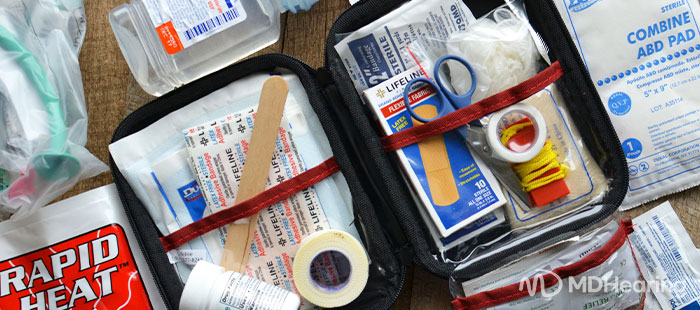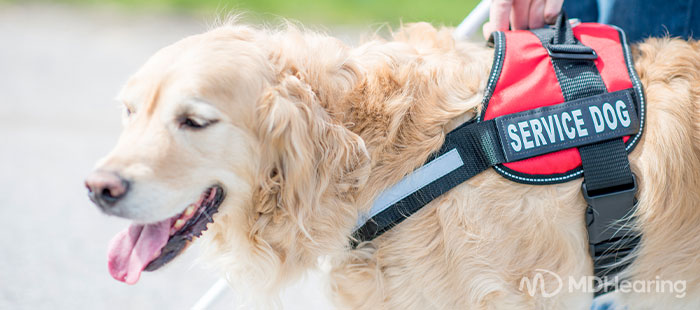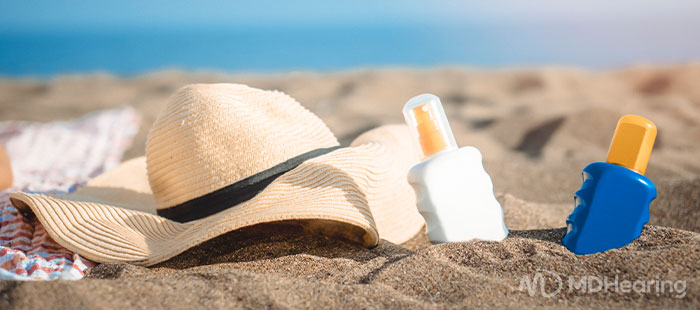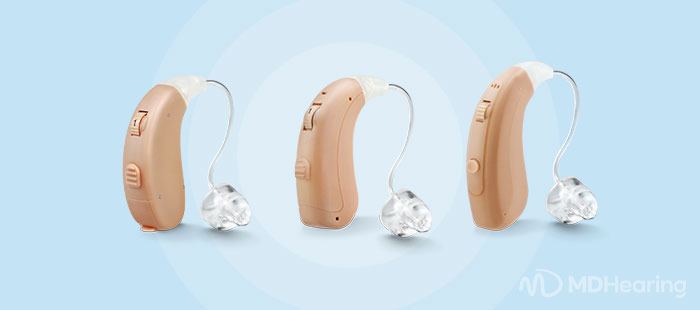Flexible spending accounts (FSAs) are one of the best-kept secrets of personal finance. By reserving part of your income for healthcare-related expenses, you can better plan for the future while lowering your tax bill as well.
Of course, the term “healthcare” covers a wide range of products and services—some of which may surprise you. The good news is that there are a wide variety of FSA-eligible items and expenses, as defined by the IRS. Below, we’ll discuss 19 unconventional, creative, and totally legal ways for you to spend the money that you’ve saved in an FSA.
What is a Flexible Spending Account (FSA)?
An FSA (flexible spending account) is a spending account set up by employers in the United States that can be used to pay for various medical and health-related expenses. For employees, the greatest benefit of an FSA is that it saves pre-tax income instead of post-tax income, which helps reduce tax obligations at the end of the year.
Medical, dental, and vision expenses are all eligible to be paid by money from an FSA. What’s more, FSAs can pay for the healthcare expenses of you, your spouse, or your dependents.
As of 2022, the U.S. Internal Revenue Service (IRS) has enacted an FSA saving limit of $2,850 per person per year. In most cases, the money saved in an FSA must be spent within the plan year. This deadline is usually December 31 if employers follow the calendar year, although some organizations may follow a different schedule (e.g. from July 1 to June 30). However, the IRS specifies that employers may allow account holders to carry over up to $570 in unused funds into the subsequent year.
The IRS generally revises the FSA saving limits on an annual basis to compensate for inflation. The asset management firm Mercer has projected that in 2023, the IRS will raise the FSA saving limit to $3,050 and the carryover limit to $610 in order to account for the high inflation rates during 2022.
There are various caveats to the standard deadline for FSA spending, however. First, some employers offer an FSA run-out period giving employees more time to file claims for their expenses from the previous year. If an employer offers a run-out period of 90 days, for example, then FSA account holders can file claims up until March 31 of the next year (90 days after December 31).
Second, some employers offer an FSA grace period allowing employees to spend funds saved from the previous year. For example, if an employer offers a grace period of 75 days, employees can continue to spend funds in their FSA account until March 15 of the next year. Note that this grace period must be no longer than the FSA run-out period.
What’s more, special rules for FSA spending were in place during 2021 and 2022 due to the extraordinary circumstances of the COVID-19 pandemic, which has disrupted medical systems around the world. The Taxpayer Certainty and Disaster Tax Relief Act of 2020, a federal law passed by Congress in December 2020, temporarily gives employers leeway to provide extensions on employees’ FSA spending and claims.
This law allows employers to extend the FSA run-out and grace periods up to a full year: for example, funds saved in 2021 can be spent up until December 31, 2022. Employers can also allow employees to carry over the entire contents of their FSA account to the next year, rather than only a limited amount. However, these protections do not extend to FSA savings in 2022 or beyond.
What are FSA-Eligible Items and Expenses?
The IRS defines the term “medical expenses” as follows:
Medical expenses are the costs of diagnosis, cure, mitigation, treatment, or prevention of disease, and for the purpose of affecting any part or function of the body. These expenses include payments for legal medical services rendered by physicians, surgeons, dentists, and other medical practitioners. They include the costs of equipment, supplies, and diagnostic devices needed for these purposes.”
The following healthcare expenses are examples of FSA-eligible items:
- Copayments
- Deductibles
- Prescription medications
- Over-the-counter (OTC) medication with a doctor’s note
For example, you can get an FSA reimbursement when you purchase OTC medicine for allergies, cold, and flu, as long as it’s accompanied by a prescription. Other eligible over-the-counter purchases include bandages, first aid kits, and thermometers.
These FSA expenses make sense and are fairly obvious, but others are a little more unorthodox. Below, you’ll find 19 surprising FSA-eligible items that you can spend the money in your FSA on—including hearing aids.
19 Shocking FSA-Eligible Items (Including Hearing Aids)
With thousands of dollars potentially saved in an FSA, it’s important that you don’t let these funds go to waste every year. The 19 FSA-eligible items below will help you make the most of the money you’ve saved.
Note that all of these expenses will require detailed receipts in order to be reimbursed. In addition, some of these expenses will need extra documentation in the form of a doctor’s prescription or a letter of medical necessity.
1. Transportation primarily for medical care
Any transportation you take in order to travel to and from essential medical care can be paid for from your FSA. This includes bus, taxi, train fares, and even airfare to see an out-of-state medical specialist.
You can also pay for the expenses of a parent traveling with an underage patient seeking medical care, as well as a nurse who must provide the patient with medications or injections.
If you are driving to and from medical care, you can pay for expenses such as gasoline and oil with your FSA, as well as the costs of parking and tolls. However, you can’t use your FSA to pay for car repairs, car insurance, or general depreciation costs.
2. Lodging primarily for medical care
Like transportation, lodging expenses may be eligible for FSA reimbursement if their primary purpose is to receive medical care from a licensed hospital or healthcare facility. However, the IRS places several restrictions on lodging as an FSA-eligible item.
First, the lodging must be essential to receive medical care due to travel away from home. Also, the lodging cannot be unnecessarily “lavish or extravagant,” and the travel cannot involve a “significant element of personal pleasure, recreation, or vacation.” If these conditions are met, the IRS allows you to pay for up to $50 per night, per person, of lodging expenses using your FSA savings.
3. Foreign medical care
FSA savings can be used not only for healthcare treatments and expenses in the United States, but for those abroad as well. This is true both for individuals who require medical care in the course of their travel abroad, as well as for those who travel specifically to receive medical care (also known as “medical tourism”). The U.S. Centers for Disease Control and Prevention (CDC) estimates that “millions” of U.S. residents travel to foreign countries for medical reasons each year.
However, there are a few caveats regarding FSA-eligible items internationally:
- The treatment(s) received must be legal in both the foreign country and the U.S., and must be an FSA-eligible item in the U.S.
- Prescription medications purchased abroad must be consumed in the country of purchase, and not imported back into the U.S.
- Reimbursement will be received in U.S. dollars, so travelers should be mindful of any currency conversion issues.
4. Home improvement
If you or another member of your household has a temporary or permanent medical issue, you can use your FSA to pay for home improvements with the main purpose being medical care.
According to the IRS, these modifications may include:
- Building wheelchair ramps for your home
- Widening doorways and hallways
- Adding railings and support bars
- Modifying parts of the home such as kitchen cabinets and electrical outlets for easier access
However, the IRS specifies that these improvements should not usually increase the home’s value. For example, elevators are not usually considered an FSA-eligible item, because they increase the home’s value for people without disabilities as well.
FSAs can also be used to pay for the costs of removing lead-based paint from your home, if a child in the home has or had lead poisoning. The IRS clarifies that the paint “must be in poor repair (peeling or cracking) or within the child’s reach.” However, the costs of repainting are not included.
5. Car modifications
Similarly, you may be able to include modifications to your vehicle, such as special hand controls for disabled drivers, as an FSA-eligible item.
If you purchase a new car for a wheelchair user, your FSA can also pay for the additional cost of buying a wheelchair-compatible vehicle, rather than a standard vehicle.
6. Service animals
Service animals such as guide dogs are eligible for FSA expenses. This includes a wide range of expenses: both the initial costs of purchasing and training the animal, as well as necessary maintenance costs like food and veterinary care.
7. Air conditioning
People with allergies and respiratory illnesses are often extremely sensitive to the air quality and air temperature inside their home. For these reasons, they may use air purifiers or air conditioners with a specialized filter that removes dust, particulate matter, and other allergens.
To receive FSA reimbursement for an air conditioner or air purifier purchase, you must be able to prove that the device’s primary purpose is to treat or alleviate a medical condition. Air conditioners for general use aren’t covered under FSA spending.
8. Birth control and family planning
Hormonal birth control and other contraception methods are an important part of sexual health. The IRS allows you to pay for birth control pills, adhesive patches, and intrauterine devices (IUDs) with your FSA.
Other FSA-eligible items related to birth control and family planning include condoms, pregnancy test kits, and medical abortions. Sterilization procedures such as vasectomies and tubal ligations can also be paid for with FSA savings.
9. Fertility treatments
Conversely, fertility treatments are also eligible to be classified as FSA expenses. The forms of fertility treatment include in vitro fertilization (IVF), assisted reproductive technology (ART), and artificial insemination, as well as medications that enhance fertility.
In certain cases, the costs of egg donation and storage are also reimbursable with a doctor’s letter of medical necessity. However, the costs of sperm storage cannot be paid for with an FSA.
10. Menstrual care products
The Coronavirus Aid, Relief, and Economic Security (CARES) Act, passed by the U.S. Congress in 2020, was primarily intended to provide economic relief in the wake of the COVID-19 outbreak. However, the law also expanded the list of FSA-eligible items to include hygiene products for menstruation. These include tampons, menstrual pads, liners, cups, and sponges.
11. Breastfeeding products
The American Academy of Pediatrics recommends that children be breastfed for at least the first six months of their lives, which is why breastfeeding products are an FSA-eligible item.
These products include:
- Breast pumps
- Breast pump bustiers
- Breast milk storage bottles or bags
- Breastfeeding classes
12. Sun protection products
Prolonged exposure to ultraviolet (UV) light is known to be a major cause of skin cancer. The Skin Cancer Foundation estimates that 1 in 5 Americans will develop skin cancer before the age of 70.
Skincare products that protect your skin from the sun’s harmful UV rays are therefore an FSA-eligible item. These products should have an adequate SPF (sun protection factor) and be primarily used for sun protection (i.e., suntan lotion without sunscreen is not eligible).
The FSA-eligible items for sun protection include:
- Sunscreen (including sunscreen for children, sunscreen for wet skin, and sunscreen with insect repellent)
- Prescription-strength sunglasses
- Lip balm (with an SPF of 15 or greater)
- Sunburn creams and ointments (with a prescription)
13. Alternative medicine
Are you a believer in alternative medicine such as acupuncture, osteopathy, or Christian Science? Do you see a chiropractor when your back is hurting? Some (but not all) forms of alternative medical treatment are eligible for FSA expenses.
Below are some alternative healing methods included under FSA-eligible items:
- Homeopathy
- Naturopathy and acupuncture
- Chiropractic
- Reiki
- Energy therapy
14. Addiction treatments
If you, your spouse, or your dependent is struggling with addiction, the good news is the cost of treatment may be reimbursable with your FSA.
FSA-eligible items related to addiction include:
- Psychologists, psychoanalysis, and psychiatric care
- Alcoholics Anonymous meetings
- Drug addiction treatment and counseling (including detoxification and self-help groups)
- Rehab centers
- Halfway houses
15. Personal trainers and dietitians
No, you can’t get an FSA reimbursement for a personal trainer to motivate you to go to the gym in the mornings. However, with a letter of medical necessity from a doctor, personal trainers are an FSA-eligible item in certain cases. This may include extreme obesity, diabetes management, or any situation in which it may help treat a medical condition.
Similarly, you can use your FSA to pay for the costs of dietitians and nutritionists—not to help you lose those pesky 10 pounds, but to help treat a specific diagnosed medical condition.
16. Wigs
Hair loss occurs due to a variety of conditions, such as thyroid disease and alopecia areata. It can also happen as a side effect of chemotherapy, which is used to treat cancer and other serious illnesses.
Regardless of its cause, hair loss can be psychologically traumatic for those afflicted. The IRS allows FSAs to reimburse the cost of wigs, based on the recommendation of a medical professional who believes it will help the patient’s mental health.
17. Yoga
Yoga has its roots in ancient India, but it’s now practiced by millions of people around the world for its physical and mental benefits. Various studies have shown that yoga may help lower stress and reduce practitioners’ risk of high blood pressure. You can reimburse yoga-related expenses with a letter of medical necessity saying it will help treat, mitigate, or prevent a medical condition.
18. Books in braille and audiobooks
Does your household include a book lover who reads in braille or who listens to audiobooks? Good news: you can use your FSA to pay for the excess cost of purchasing books in braille or audiobooks, beyond the standard price of a printed book.
19. Hearing aids
Last but certainly not least, hearing aids and related expenses can be paid for with an FSA. This includes the cost of the hearing aids themselves, as well as all required supplementary costs such as hearing aid batteries, repairs, and maintenance.
Tens of millions of people in the U.S. have various types of hearing loss and could benefit from wearing hearing aids, which makes this a great advantage of FSAs. Other methods of treating hearing loss are also FSA-eligible items, such as cochlear implants.
What About FSA-Ineligible Items?
The range of FSA-eligible items is quite broad, as we’ve proven in the section above. However, they do have their limits: FSAs cannot be used to pay for every possible expense related to health, wellness, and beauty.
Some of the expenses that are NOT eligible for FSA spending are:
- Insurance premiums: In most cases, FSAs only cover insurance copays and deductibles, not your monthly premium.
- Cosmetic surgery: Nose jobs, teeth whitening, hair transplants, and tummy tucks may help you feel better about your appearance, but you’ll have to pay for them with your post-tax dollars.
- Adoption fees: You can pay for adoption-related medical expenses with an FSA, but the costs of the adoption itself aren’t eligible.
- Babysitting and childcare: If your child is healthy, then you can’t pay for the costs of babysitting and childcare with an FSA—even if you, your spouse, or a dependent will receive medical treatment during this time.
- Family or marriage counseling: It may help keep your household together, but family and marriage counseling aren’t eligible for FSA expenses.
- CBD products: Cannabidiol (CBD) and medical marijuana are legal in many states, but still in a gray area on the federal level. This means they aren’t eligible for FSA expenses.
- General dental and hygiene products: Brushing your teeth twice a day may help keep the cavities away, but items like toothpaste, toothbrushes, mouthwash, dental floss, lotions, and soap still aren’t eligible for FSA expenses.
- Some training and education programs: Classes on some health-related topics like CPR may help you save a life, but the IRS doesn’t consider them healthcare-related expenses.
Conclusion
We’ve shown throughout this article that “flexible spending accounts” truly live up to their name. From taxi rides and service animals to hearing aids and alternative medicine, FSAs give you the flexibility to spend your hard-earned money—tax free—on a wide variety of medical expenses.
Are there extra funds sitting in your FSA? Don’t let them go to waste. If you’re in the market for a new hearing aid, why not spend those FSA dollars on a high-quality, affordable hearing aid for as low as $299 per pair?
MDHearing offers a diverse family of hearing aid models that can assist mild to moderately-severe hearing loss. All of our FDA-registered, medical-grade hearing aids are backed by a 45-day, risk-free trial and 100% money-back guarantee.
MDHearing also has a U.S.-based customer support team of licensed audiologists and hearing aid specialists. There’s no risk in trying MDHearing for yourself.
Want to see why more than 500,000 happy customers have entrusted their hearing to MDHearing? Check out our products today.
COMPARE HEARING AIDS





